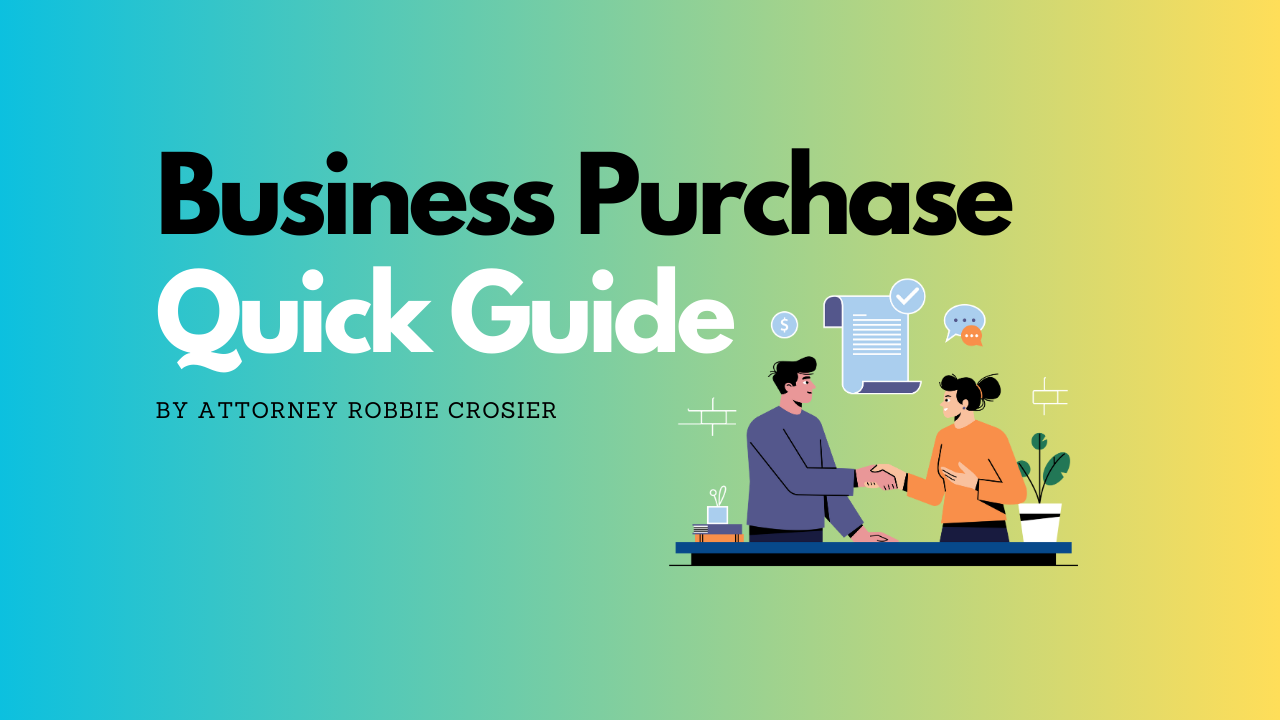A Quick Guide to Purchasing a Small Business
Are you an entrepreneur who’s recently become interested in the idea of purchasing a turn-key small business? If so, that’s great! Purchasing a ready-made small business can allow you to “shortcut” the entrepreneurial process and begin cash-flowing right out of the gate. That said, remember that due diligence is always important, and it’s critical that you take the time to vet the business you’re interested in purchasing. With that caveat out of the way, let’s break down the process of purchasing a small business so you have a basic understanding of the steps you will be going through.
1. Self-Assessment
Identify Your Goals and Skills
Before diving into the market, assess your goals, skills, and interests. Understand why you want to buy a business and what you bring to the table. Are you looking for a lifestyle change, passionate about entrepreneurship, or seeking financial independence?
Financial Assessment
Determine your financial readiness. How much capital do you have for the purchase? Do you have additional funds for operational costs post-acquisition? A clear financial picture is crucial.
2. The Search Begins
Online Marketplaces
The internet is a treasure trove for potential business listings. Websites like BizBuySell, BusinessesForSale, and LoopNet are good starting points.
Business Brokers
Brokers can be invaluable. They understand the market, know what's available, and can match you with businesses that meet your criteria. However, remember that brokers represent sellers and are motivated to close the sale.
Networking
Utilize your personal and professional networks. Industry contacts, local business groups, and friends may lead you to potential opportunities.
3. Evaluating Potential Businesses
Initial Screening
Create a checklist for initial screening. What size business do you want? What locations are you considering? Are you looking for a particular growth potential or lifestyle fit?
Due Diligence
Once you have a target, due diligence is critical. Review financial statements, tax returns, existing contracts, and customer data. Confirm the accuracy of the seller's information.
4. Making an Offer
Valuation
Understand how businesses are valued. Multiple methods exist, such as asset-based, earnings-based, and market-based valuations. Each has its merits and fits different types of businesses.
Letter of Intent (LOI)
The LOI outlines your intention to buy and the terms under which you're willing to proceed. It's typically non-binding but shows serious interest.
5. Financing the Purchase
Self-Financing
If you're using your own money, ensure that you're comfortable with the investment and aware of the risks.
Loans
For loans, consider the Small Business Administration (SBA) as a potential source. They offer programs that can be used to purchase existing businesses.
Seller Financing
Seller financing can be an option where the seller agrees to be paid over time. This can benefit both parties but requires a solid agreement.
6. The Acquisition Process
Asset Purchase vs. Stock Purchase
Decide whether you're buying the business's assets (asset purchase) or the stock (stock purchase). Each has different implications for liability and taxes.
Negotiating the Purchase Agreement
This agreement finalizes the terms of the sale. It should detail every aspect of the transaction, including price, terms, liabilities, transition assistance, non-compete clauses, and more.
Closing the Deal
Closing is the final step where paperwork is signed, payments are exchanged, and you officially take over the business. It's a process that should be guided by an attorney to ensure all legal aspects are covered.
7. Transitioning into Ownership
The Transition Plan
Work with the seller to create a transition plan. This can include training, introductions to key clients or suppliers, and an overview of operational specifics.
Change of Ownership
Notify all stakeholders about the change of ownership. This includes employees, clients, suppliers, and creditors.
Integration Plan
Have an integration plan to incorporate the business into your vision. It should cover operational changes, marketing plans, and any restructuring needed.
Purchasing a small business is a significant undertaking that requires careful planning, research, and professional assistance. By following these steps and seeking counsel from experienced business advisors and legal professionals, you can make the transition into business ownership a successful one.
For expert guidance throughout the process of purchasing a small business in Plano, Texas, reach out to the Crosier Law Firm. Our team is dedicated to assisting you with professional advice and support every step of the way.
